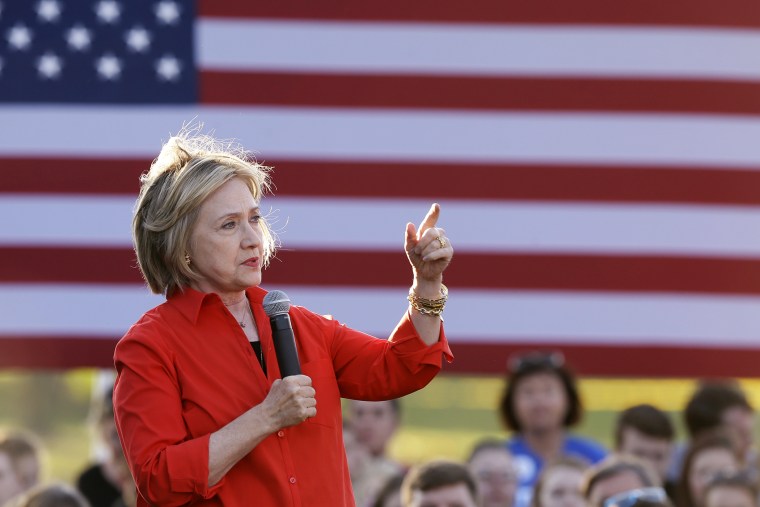The question was not whether Hillary Clinton would support an increase in the minimum wage, but what dollar amount the Democratic candidate would recommend for the hourly minimum. Yesterday, the former Secretary of State got specific for the first time this year.
Hillary Clinton on Tuesday stated in her most clear language yet that she supports a $12 an hour minimum wage, which falls short of the level sought by many labor unions but is higher than the one favored by President Obama. “I favor a $12 an hour minimum wage at the federal level,” Clinton said at a town hall in Coralville, Iowa. “That would be setting it at a level that would be equivalent to the point in our history where the minimum wage was at its highest” since 1986, she said.
The current minimum is $7.25 an hour. Nearly a year ago, President Obama urged Congress to raise that floor to $10.10 (congressional Republicans refused to even debate the issue). Clinton's $12 position exceeds the White House's proposal, but doesn't go quite as far as the $15 minimum supported by Bernie Sanders and Martin O'Malley.
Clinton's announcement is new, but it doesn't come as a complete surprise. Sen. Patty Murray (D-Wash.) proposed a $12 minimum federal wage earlier this year, and Clinton has expressed at least tacit support for the Murray plan. Yesterday, however, she made it official.
The larger context, though, sets the stage for a very interesting fight in 2016.
While there's room for debate among the leading Democratic candidates, nearly every Republican presidential hopeful opposes any increase whatsoever. Indeed, a surprising number of GOP candidates have suggested that the federal minimum wage shouldn't exist at all.
Carly Fiorina recently suggested the minimum-wage law is unconstitutional; Sen. Marco Rubio (R-Fla.) has said, “I don’t think a minimum wage law works"; and former Florida Gov. Jeb Bush (R) went so far as to say, “We need to leave it to the private sector. I think state minimum wages are fine. The federal government shouldn’t be doing this.”
By all appearances, a minimum-wage increase would be quite popular, which suggests the Democratic nominee will probably be eager to put this issue up front and center in the 2016 general election.
